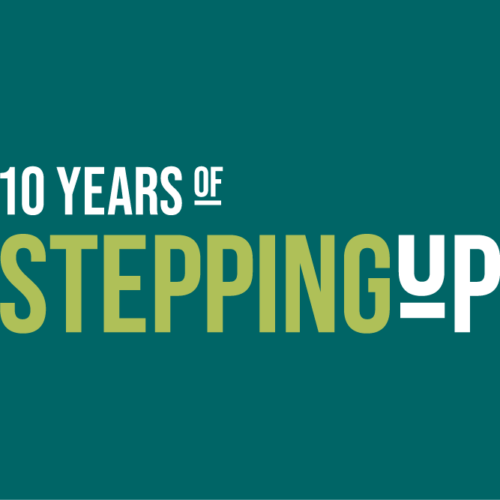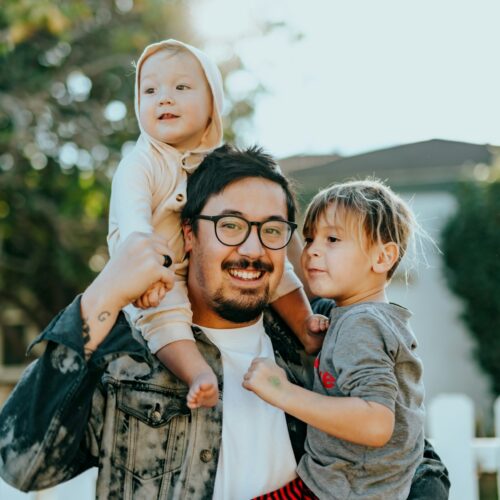JMHCP Grant Helps San Luis Obispo ‘Step Up’ to Improve Lives of People With Mental Illnesses in Jail
San Luis Obispo, California was awarded a Justice and Mental Health Collaboration (JMHCP) grant from the U.S. Department of Justice’s Bureau of Justice Assistance in 2018 to improve responses to people with mental illnesses in their local criminal justice system. The CSG Justice Center reached out to discover why the county applied for the grant and what they are doing to reduce the number of people with mental illnesses in their jails.
Name: Jessica Yates
Title: Business Analyst, Justice and Mental Health Collaboration Program
Name of County: San Luis Obispo, California
County Population: 283,405
Why did you apply for the JMHCP grant?
We applied for the JMHCP grant to help San Luis Obispo build out its Stepping Up program and to reduce the number of people with serious mental illnesses in our jail. Stepping Up is one of the priorities of our County Board of Supervisors and is the umbrella that contains all of the programs, partnerships, interventions, and collaborations being built across San Luis Obispo County to benefit the population impacted by mental illness.
What is the main goal that you hope to achieve with the grant?
The main goal is restoration of these individuals so that they aren’t coming back to jail and that they are being connected to community services so they can have a better quality of life. Since we received the JMHCP grant and joined Stepping Up, we have really come together as an entire county with one goal focused on improving the quality of life for these individuals in the community.
What are some of your accomplishments since you were awarded the JMHCP grant?
We opened a behavioral health unit inside the jail last year that features specialized classrooms that are used to help individuals build their life skills as well as host counseling sessions, group therapy, and anger management classes. We provided CIT training to those deputies who work in the jails. We also launched a jail-based competency program in July that provides intensive services to anyone deemed incompetent to stand trial to restore their competency so their case can be resolved more quickly, which has dropped the average wait for this population to get essential services from approximately 100 days to about 10 days. And we recently launched a diversion court with the goal of diverting people to community services instead of entering the criminal justice system when diversion is the appropriate response based on their needs. With the JMHCP grant, we were also able to hire a full-time person to administer the grant and another person who works part-time solely on supporting the Stepping Up initiative. One of our biggest achievements was introducing a data-sharing agreement specifically as part of the Stepping Up initiative that allows us to gather data about this population across the sheriff’s office, court, probation, and behavioral health agencies. The sharing of such information enhances our ability to better coordinate services in a collaborative approach. And we were chosen as one of 17 Stepping Up Innovator Counties in the United States for our leadership on this issue.
What does it mean to be a Stepping Up Innovator County, and why was San Luis Obispo chosen to this select group of counties?
Stepping Up Innovator Counties are at the forefront of working to reduce the number of people with mental illnesses in jails. We are using the Stepping Up initiative’s suggested approach to collect and analyze timely data on the prevalence of people in jail who have serious mental illnesses. One of the first steps that we took was to ensure that everyone booked into jail is screened for mental illnesses. For people who are screened as potentially having a mental illness, we can further assess the individual and provide treatment and services while in the jail and ensure connections to care upon release are in place.
What do you hope to accomplish next with the JMHCP grant?
First, we have just hired a full-time Stepping Up program manager in November to further our efforts. We are also finishing a planning and implementation guide and will implement those recommendations, such as increasing the number of people who receive CIT training in San Luis Obispo and more than tripling the size of our mental health diversion court.
The sharp rise in school shootings over the past 25 years has led school officials across the U.S.…
Read MoreA three-digit crisis line, 988, launched two years ago to supplement—not necessarily replace—911. Calling 988 simplifies access to…
Read MoreIt would hardly be controversial to expect an ambulance to arrive if someone called 911 for a physical…
Read More Taking the HEAT Out of Campus Crises: A Proactive Approach to College Safety
Taking the HEAT Out of Campus Crises: A Proactive Approach to College Safety
The sharp rise in school shootings over the past 25 years has led school officials across the U.S. to take a closer look at ways to keep students safe. For Chaffey College in Rancho Cucamonga, California, a tragic incident at a nearby university hit close to home and spurred campus leaders to revisit their own school’s threat assessments and crisis responses.
Read More From 911 to 988: Salt Lake City’s Innovative Dispatch Diversion Program Gives More Crisis Options
From 911 to 988: Salt Lake City’s Innovative Dispatch Diversion Program Gives More Crisis Options
A three-digit crisis line, 988, launched two years ago to supplement—not necessarily replace—911. Calling 988 simplifies access to services when people are seeking help for themselves or loved ones with suicidal thoughts, behavioral health concerns, or substance use-related crises.
Read More Matching Care to Need: 5 Facts on How to Improve Behavioral Health Crisis Response
Matching Care to Need: 5 Facts on How to Improve Behavioral Health Crisis Response
It would hardly be controversial to expect an ambulance to arrive if someone called 911 for a physical health emergency. And yet, for years, the default responders for a behavioral health emergency have been law enforcement officers, not behavioral health professionals.
Read More The 10-Year Impact—and Future—of Stepping Up: Facing the Behavioral Health Crisis in Jails and Communities with Real Solutions
The 10-Year Impact—and Future—of Stepping Up: Facing the Behavioral Health Crisis in Jails and Communities with Real Solutions
As the Stepping Up initiative marks its 10th year, America’s justice and behavioral health systems are facing a shared crisis: how to meet the behavioral health needs of people cycling through jails.
Read More A “Once in a Generation Opportunity” to Improve Reentry for Nearly 2 Million People
A “Once in a Generation Opportunity” to Improve Reentry for Nearly 2 Million People
19 states were recently granted permission by CMS to reimburse critical reentry services with Medicaid funding for up to 5 years.
Read More Local Criminal Justice System Innovations in Mental Health Services: Q&A with CSG Justice Center Advisory Board Member Dr. Doreen Williams
Local Criminal Justice System Innovations in Mental Health Services: Q&A with CSG Justice Center Advisory Board Member Dr. Doreen Williams
"It is the humane, person-centered approach that supports and stabilizes individuals, their families, and their communities."
Read More









